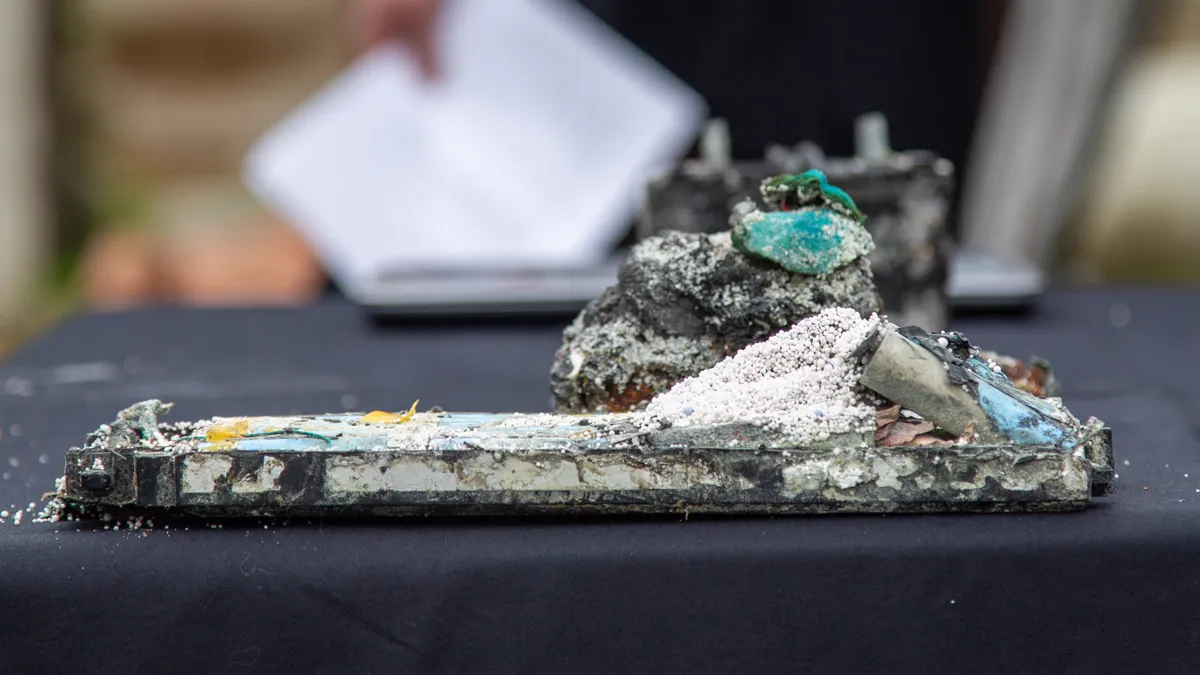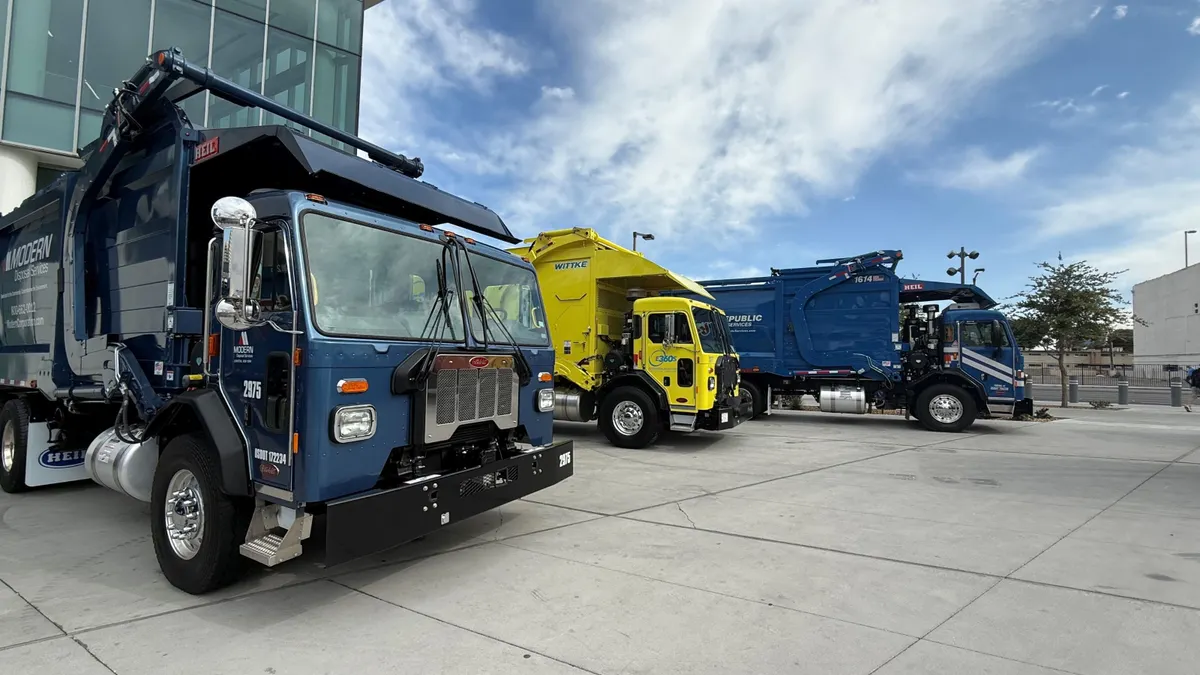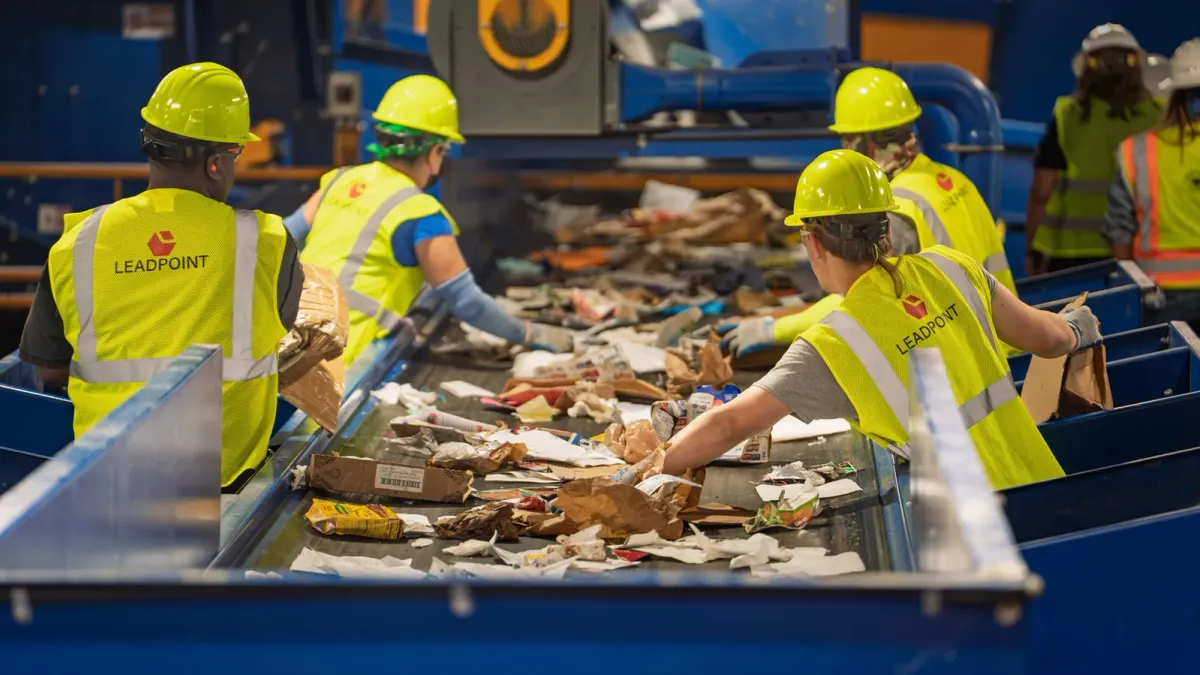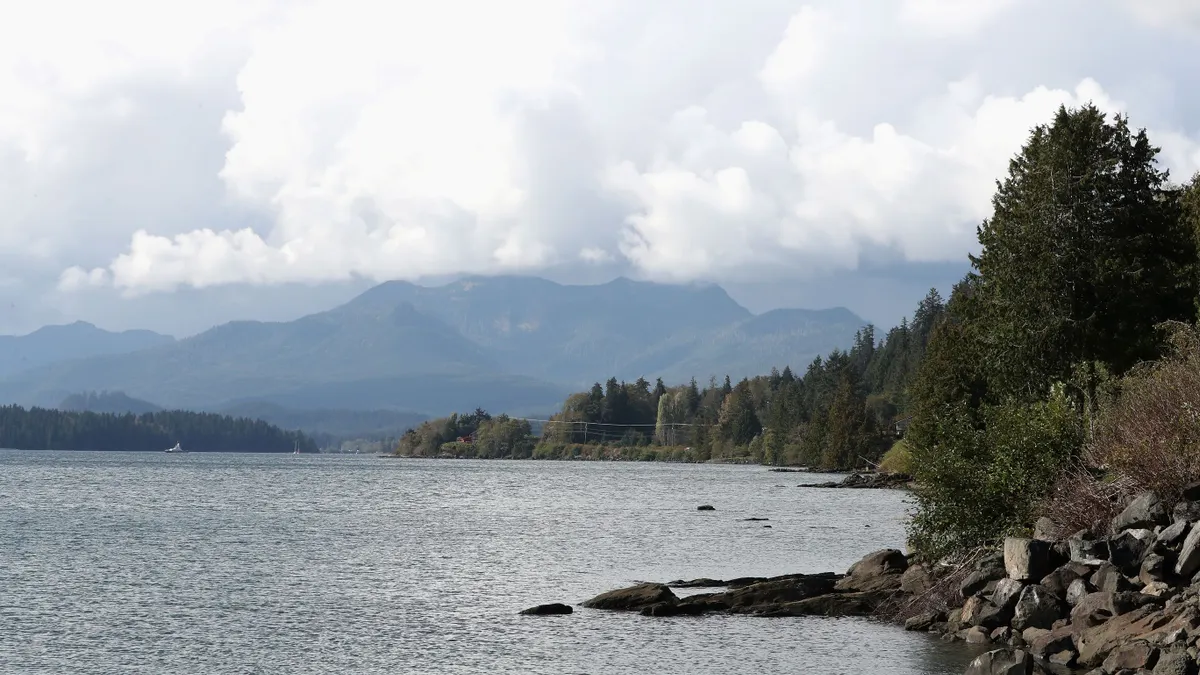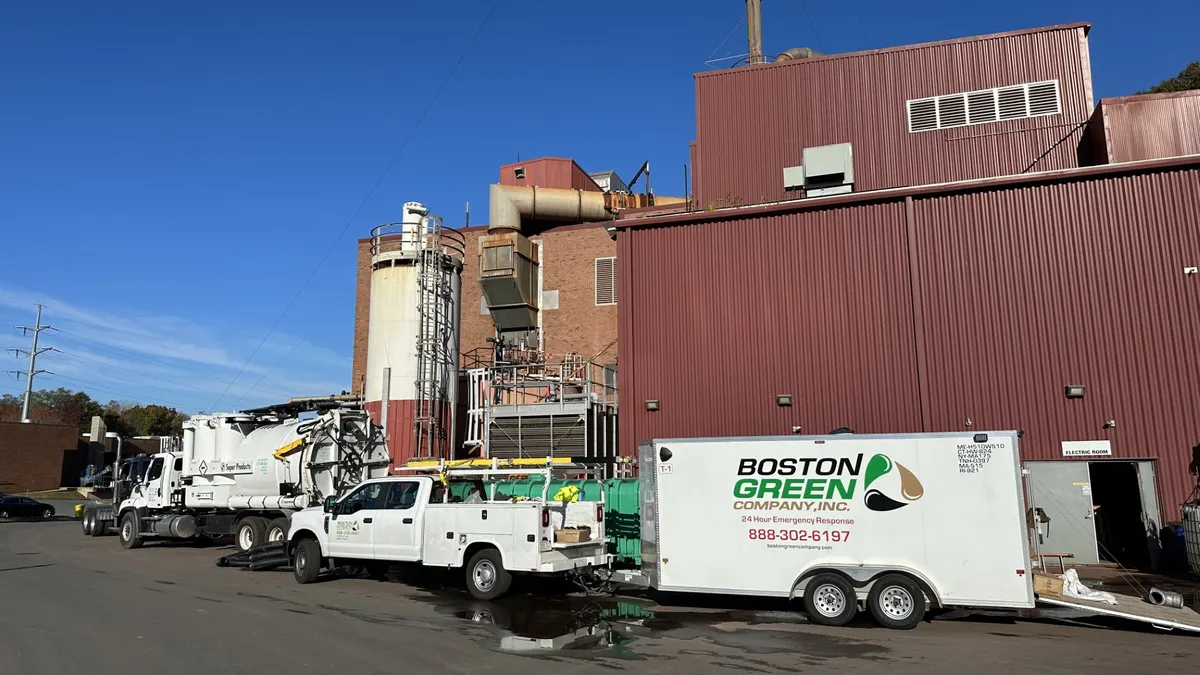Welcome to Scrap Collector, Waste Dive's Friday round-up of insights and stories you may have missed during the week.
OPEN DUMPS CAUSING SHIFTS IN ANIMAL BEHAVIOR
While the effects of plastic pollution on marine ecosystems have been well-documented, corresponding effects on terrestrial wildlife are typically given less consideration — until now. According to a new study published in Current Science, the steady influx of plastic in open garbage dumps may pose as many risks to your favorite land animals as it does to turtles with a nose for trouble.
Over a two-month period, researchers monitored two dumping sites (home to a mix of organic and non-biodegradable waste) in India's Nainital district, observing a total of 32 bird and mammal species feeding on the garbage. They divided the animals into three distinct groups: peckers (birds that used their beaks to extract food from plastics), handlers (species that used their hand-like appendages to separate food) and gulpers (animals that, lacking both beaks and "hands," gulped down both food and plastic indiscriminately).
While handlers and peckers came into contact with plastic more than twice as often as gulpers, they weren't actually seen ingesting any plastic — macaques, clever handlers that they are, were often spotted opening garbage bags to pick out food. Gulpers, on the other hand, aren't capable of fishing food out as efficiently and consequently spend more time foraging at dumps. These species, according to the researchers, may be more susceptible to plastic ingestion than their pecking and handling counterparts; plastic remains are frequently observed in the stomach contents and feces of gulpers (e.g., mammals such as elephants and red foxes, and large-beaked birds such as storks and vultures).
"Our results underscore an urgency to tackle waste disposal in and around nature reserves which are popular tourist destinations," the study concludes. "Creating public awareness on waste segregation and discouraging disposable plastics coupled with preventive measures such as fencing garbage dumps and landfills and shifting garbage dumps away from forest edge will help reduce exposure of wildlife to plastics and other harmful waste."
IN OTHER NEWS...
California city gets a trashy surprise — YourCentralValley
One small push of a button, one giant trail of trash for mankind. That was the situation in Fresno, California on Wednesday, when a Republic driver accidentally dumped a huge pile of collected garbage in the middle of a roadway — right in front of a local elementary school.
"It's a lot of garbage on the street," said a seemingly shell-shocked Jesus Diaz. "I can't believe that was a big pile on the street."
Another employee, however, seemed to take his colleague's 20-yard mistake in stride: "Stuff happens, you got to deal with it, so we can pick it up." And, lest you forget that waste workers have seen some things, he added this tantalizing tidbit: "This actually [isn't] bad compared to the other stuff we deal with."
AROUND THE WORLD
UK environmental committee proposes "Paris agreement for the sea" — The Guardian
A cross-party group of MPs — citing the increasingly salient perils of plastic and chemical pollution, overfishing, climate change and deep-sea mining — is pushing the UK to consider a global agreement for ocean protection. In a new report released Thursday, the Environmental Audit Committee underscored the "lack of data on the serious long-term harm and health implications of plastic particles entering the food chain," criticizing the government for keeping oceans "out of sight, out of mind."
In addition to calling for a "Paris agreement for the sea," the committee recommends intensified GHG reduction efforts as well as an earlier target date for phasing out avoidable plastic waste — while UK Prime Minister Theresa May's government made a series of plastic pledges in 2018, it appears that MPs have something more ambitious in mind.
"We have to stop treating our seas as a sewer," urged Labour MP and committee chair Mary Creagh. "Plastic, chemicals and sewage are choking our oceans, polluting our water and harming every ocean species from plankton to polar bears."
"Supporting Indonesia and Malaysia to reduce plastic while simultaneously exporting our contaminated plastics to them shows the lack of a joined-up approach at the heart of the government's strategy," she added.
Philippines: "We are not a garbage can" — Manila Bulletin
After being held for nearly six months at a Filipino port, 51 containers filled with approximately 1,400 tons of illegally exported waste were finally shipped back to South Korea this past weekend. While the send-off was celebrated as a "triumph for environmental justice, morality, and the rule of law," local environmental group EcoWaste pointed out that the fight isn't over yet — approximately 5,200 tons of bulk waste still need to be returned to their country of origin.
"By saying 'no' to garbage dumping from Korea and other countries, we say 'no' to the derogation of our country's dignity and sovereignty, 'no' to the disrespect for national and international laws, and 'no' to the harm they will bring to our communities," EcoWaste Coalition national coordinator Aileen Lucero told a crowd gathered to observe the send-off ceremony.
Meanwhile, 103 containers of illegal Canadian waste have resided in the Philippines since 2013 — and, as the EcoWaste Coalition notes, this latest development may provide the push Canada needs to finally pick up its trash: "[T]he repatriation of the South Korean garbage to its source should rouse Canada into resolving the festering garbage dumping controversy."
SEEN & HEARD
Love this idea from Japan. Who's willing to do it at US facility? "Waste-Pit Bar, a temporary cocktail bar set up within a waste disposal facility" is "part of an initiative aimed at boosting awareness of environmental issues" https://t.co/2G21SvtgnX
— Cole Rosengren (@ColeRosengren) January 16, 2019
AMEN-- lost religious items are recovered from transfer station by Coney Island resident and his friends. Items were mistakenly tossed in trash and found. Divine intervention with an assist from DSNY. pic.twitter.com/zOJCtnc8zm
— NYC Sanitation (@NYCSanitation) January 15, 2019







